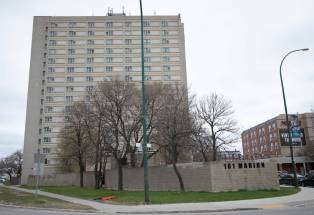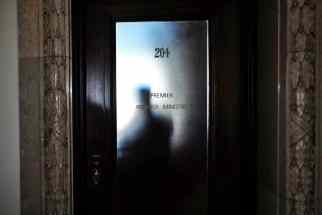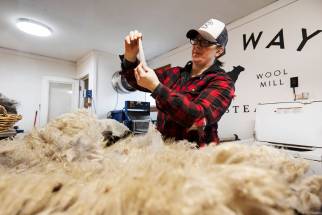Home squalid home Tenants enduring filthy, bug-infested and unsafe conditions in a dilapidated Manitoba Housing high-rise complex in St. Boniface say repeated complaints to management have mostly been ignored
Read this article for free:
or
Already have an account? Log in here »
To continue reading, please subscribe:
Monthly Digital Subscription
$0 for the first 4 weeks*
- Enjoy unlimited reading on winnipegfreepress.com
- Read the E-Edition, our digital replica newspaper
- Access News Break, our award-winning app
- Play interactive puzzles
*No charge for 4 weeks then price increases to the regular rate of $19.00 plus GST every four weeks. Offer available to new and qualified returning subscribers only. Cancel any time.
Monthly Digital Subscription
$4.75/week*
- Enjoy unlimited reading on winnipegfreepress.com
- Read the E-Edition, our digital replica newspaper
- Access News Break, our award-winning app
- Play interactive puzzles
*Billed as $19 plus GST every four weeks. Cancel any time.
To continue reading, please subscribe:
Add Free Press access to your Brandon Sun subscription for only an additional
$1 for the first 4 weeks*
*Your next subscription payment will increase by $1.00 and you will be charged $16.99 plus GST for four weeks. After four weeks, your payment will increase to $23.99 plus GST every four weeks.
Read unlimited articles for free today:
or
Already have an account? Log in here »
Hey there, time traveller!
This article was published 26/05/2022 (1302 days ago), so information in it may no longer be current.
Without hesitation and with the speed of a seasoned marksman, Randall Wolak took aim as a roach scuttled down the elevator door jamb at the Manitoba Housing high-rise where he has lived for nearly a decade.
The 68 year old, who is on a wait list for knee surgery, firmly planted his crutch in the path of the pest that’s taken up residence in the building at 101 Marion St., forcing it to retreat into the crevices of the elevator shaft, startling a neighbour exiting the dingy car to the second floor.
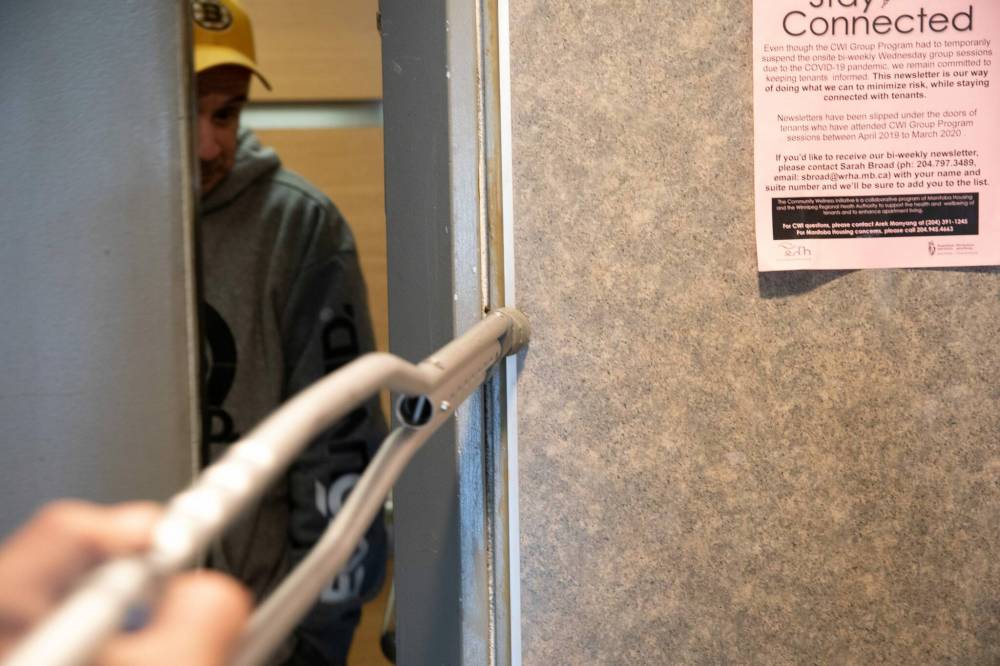
Rampant roach and bedbug infestations are just one of many concerns tenants at the Manitoba Housing complex have reported to management only to see little or no action taken to improve conditions at the primarily 55-plus residence, Wolak told the Free Press during a recent visit to the building.
“It progressively got worse, and worse, and worse,” Wolak said, describing the decline in maintenance, cleanliness and safety at the St. Boniface building over the past six years.
Linoleum-tiled halls go unwashed in areas where tenants don’t take on the task of mopping; damaged doors are repaired with planks of scrap wood rather than replaced; and cupboards in communal gathering spaces remain under lock and key as a reminder of past break-and-enters, Wolak said.
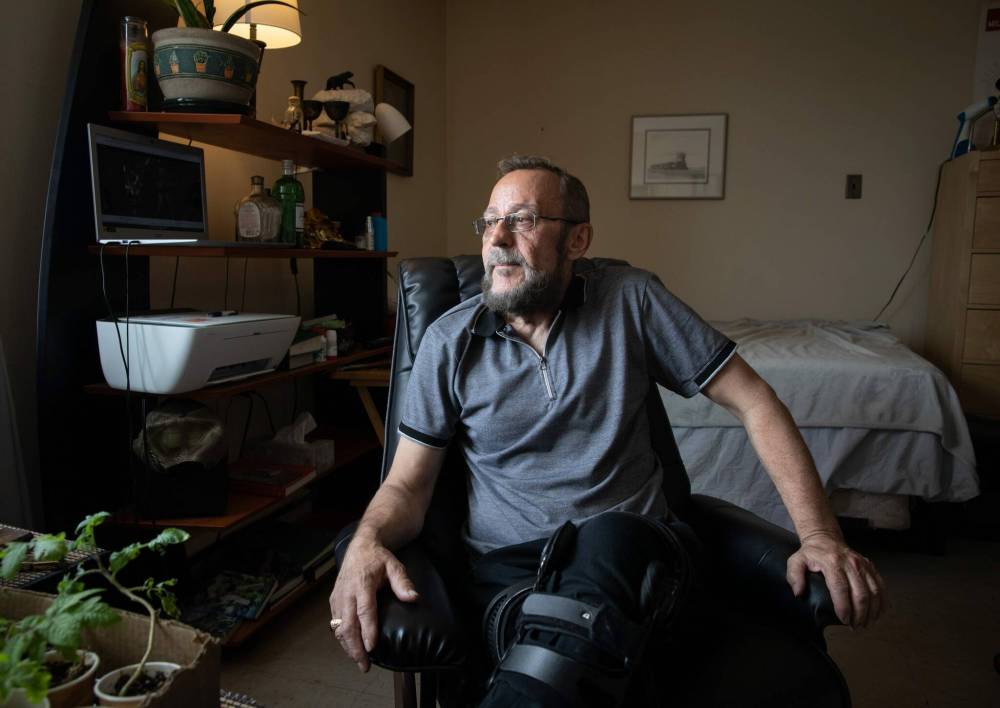
The senior said it took a year of advocacy — including holding a protest last summer to draw attention to conditions at the residential tower — before Manitoba Housing addressed bug infestations in the building’s laundry room.
Other tenants the Free Press spoke to say their sense of security has been stripped away after seeing common areas repeatedly vandalized, finding needles discarded in stairwells and watching neighbours in need of addiction or mental-health services struggle without adequate support.
“This isn’t the Ritz, but they need a doorman. They need a couple security guards,”– Daniel, Tenant of 101 Marion Street
Some residents have retreated to their suites, refusing to venture through the building after certain hours, while others have chosen to carry pepper spray while moving through the apartment tower, which has on-site security only between 7 p.m. and 5 a.m.
“This isn’t the Ritz, but they need a doorman. They need a couple security guards,” said Daniel, a tenant for the past six months.
Daniel, who asked to be identified only by his first name, said the privately contracted guards currently working in the building do not seem equipped to respond to the complex social and safety challenges tenants are reporting.
“It’s poor management on behalf of the Manitoba government,” he said. “Manitoba Housing — they have to lift up their shorts a little bit.”
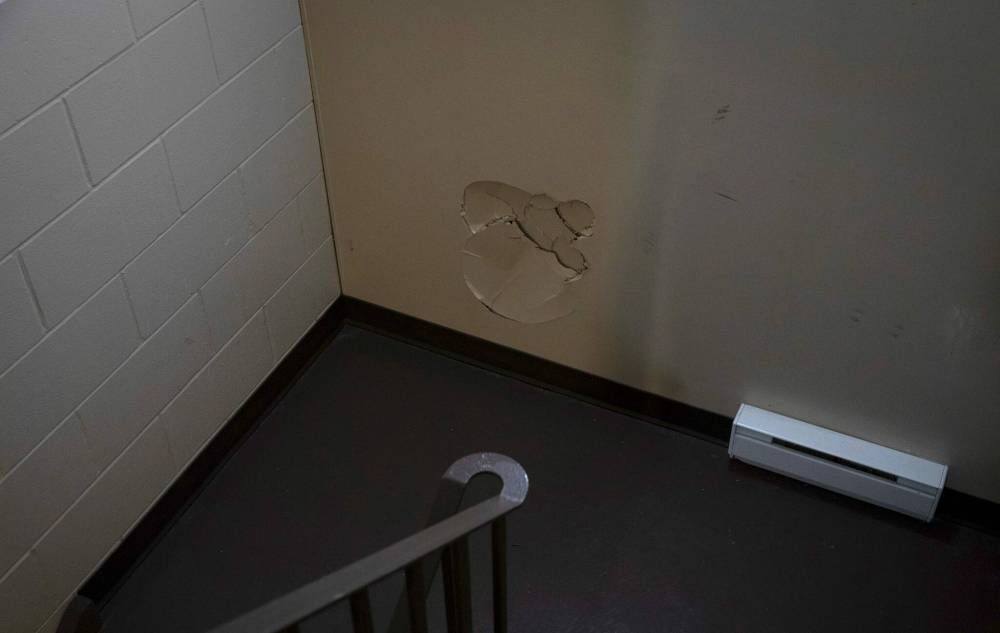
Desperate to see conditions improve, Wolak has written Manitoba Housing, Families Minister Rochelle Squires and St. Boniface MLA Dougald Lamont about the plight of the building’s tenants.
Earlier this month, Lamont threw his support behind Wolak after visiting the building and, in question period, called on Squires to view the property for herself.
“We have taken extra measures into place based on the extreme circumstances that some residents are experiencing at 101 Marion,” Squires said, highlighting the building’s key card access system, surveillance cameras and contracted security guard.
Despite those assurances, nothing has changed, Wolak said.
“It’s horrible what’s happening,” he said.

Right to Housing Coalition co-ordinator Kirsten Bernas said Manitoba Housing’s years of stagnant spending on maintenance and improvements have contributed to the state of disrepair at 101 Marion and other properties.
Annual reports show the Crown corporation spent an average of $41.9 million a year on modernization and improvement projects for its roughly 16,500 units since spring 2016. In 2015-16, the last budget under the former NDP government, Manitoba Housing spent $120 million on improvements.
In the 2020-21 fiscal year, the corporation spent just $31.4 million. The provincial government has not yet published the annual report for the past fiscal year.
According to provincial budget documents, Manitoba Housing will see its total operating budget increase by five per cent in 2022-23, to $138.7 million.
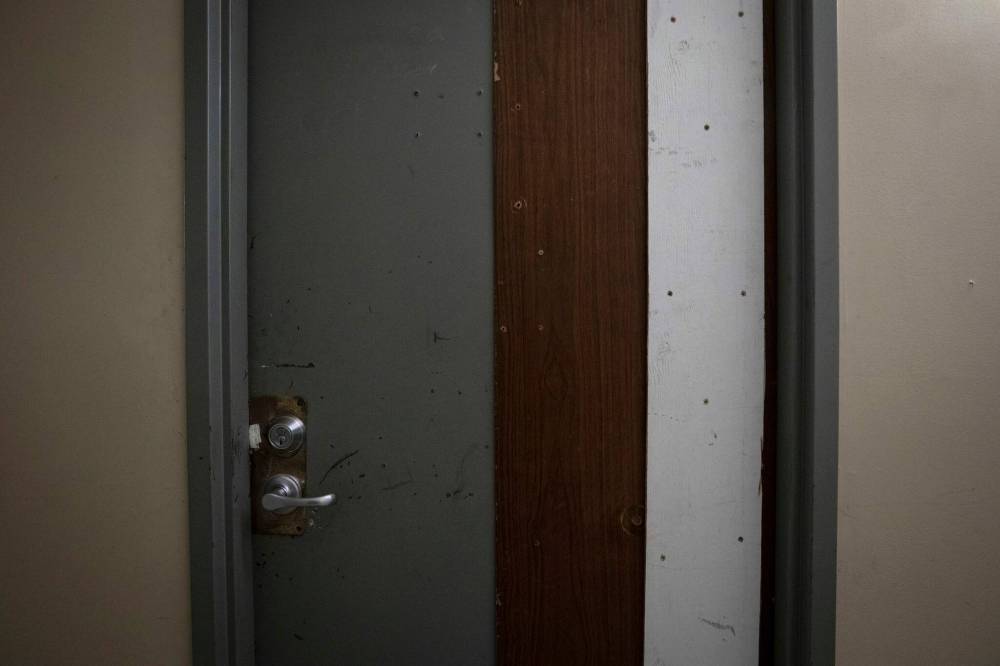
“We’re concerned with the direction that the provincial government is taking with social housing,” said Bernas, who leads advocacy efforts at the provincial level. “We know there is a much higher demand to access social housing units than we currently have supply to meet.”
Between 2019 and 2021, the number of social housing units directly managed by Manitoba Housing decreased by 790, a study by End Homelessness Winnipeg found, and more are at risk of being transferred to the private or non-profit sector if improvements continue to be delayed, Bernas said.
Manitoba Housing has sold at least eight buildings to the non-profit sector since the Progressive Conservative government announced the corporation would shift from a housing provider to a funder and regulator in 2020. It has handed over management of another 1,511 units to non-profit groups.
“A big piece of keeping what we have is making sure we’re doing the necessary capital maintenance and repairs in the existing stock,” Bernas said. “We’re losing units because those investments are declining.”
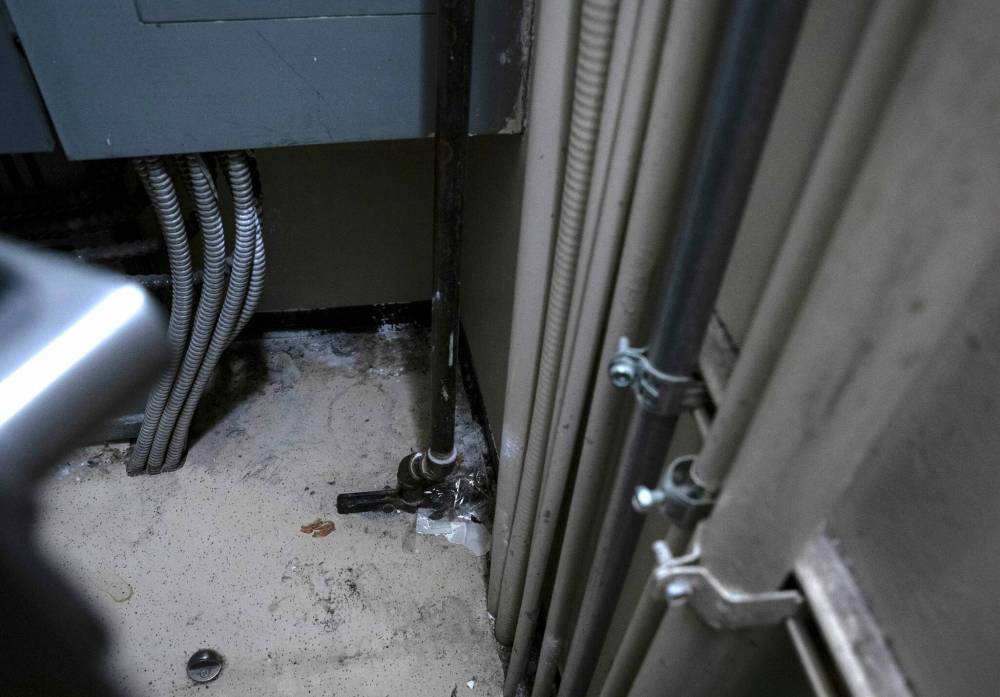
Major repairs are generally anticipated when a non-profit group takes over management of a Manitoba Housing property, Manitoba Non-Profit Housing Association executive director Christina Maes Nino said.
The industry association has been focused on ensuring members are not “set up for failure” with a bad agreement and a meagre budget once the keys are handed over, she said.
“No non-profit wants to be the face of a building that has major needs that they don’t actually have the power to address,” Maes Nino said, adding management agreements and budgets often mater more than the condition of the building.
“They don’t want to be the organization that can’t offer safe, dignified housing to people. I don’t think Manitoba Housing wants to be that, either.”
Continuously constrained budgets have challenged both non-profit management teams and Manitoba Housing to perform maintenance and repairs in a timely way, she said.
“No non-profit wants to be the face of a building that has major needs that they don’t actually have the power to address. ”– Christina Maes Nino, Manitoba Non-Profit Housing Association executive director
In other provinces, social-housing budgets have been tied to the condition of a building to guide capital spending, she said. Such a policy would offer assurances to non-profit housing managers that necessary improvements at Manitoba Housing properties are carried out.
“The budget for non-profit housing has always been very lean and public housing doesn’t get the public support that it needs,” Maes Nino said. “This is offering good, affordable housing to the lowest-income Manitobans, and as a society we don’t invest in it enough”
The Free Press requested an interview with the Manitoba Housing regional director and property manager at 101 Marion St. The provincial government provided a statement in response.
“Manitoba Housing employees are aware that tenants have expressed concerns with security, maintenance and pest issues at the building,” the statement read, in part.
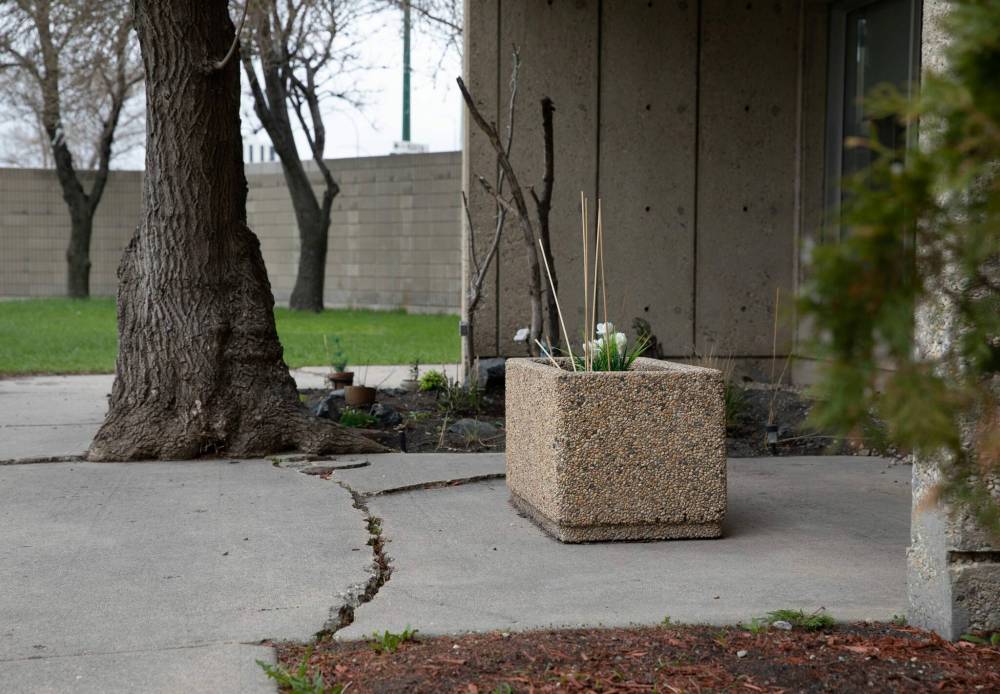
Trespassing has been on the rise in Manitoba Housing properties and in the private sector, the provincial spokesperson said, and the corporation takes tenant safety seriously. A building superintendent looks after daily maintenance and cleanliness, and repairs are completed “as required.”
Repairs are scheduled for the near future, including improvements to the exterior of 101 Marion St., the statement said. Tenants are also being offered support to prepare for pest treatments, which are conducted monthly.
“Based on recent experiences with other buildings, it will take a continuation of this trend over several months to reduce meaningfully the extent of the pest issue at the building,” the statement said.
Despite its faults, Wolak still takes pride in his home.
He regularly cleans the hall leading to the small bachelor suite he pays $525 for each month; ensures the communal gathering area is outfitted with greenery; and spends hours tending to the exterior gardens. Walking through the halls, he greets each neighbour by their name and doesn’t hesitate to lend a hand.
The apartment building offers more than shelter; it’s a community well worth his time and investment, he said.
He wants the provincial government to see that, too.
“It could be a nice place,” Wolak said, a touch of despair in his voice. “Instead, when you come over the bridge, you see filth from Manitoba Housing.”
danielle.dasilva@freepress.mb.ca
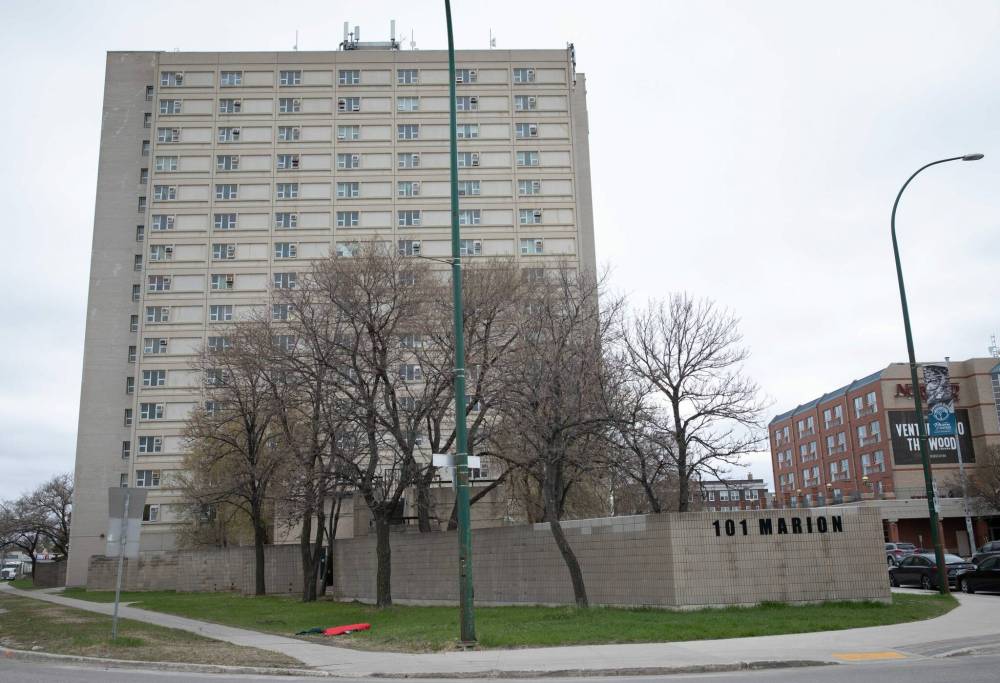

Our newsroom depends on a growing audience of readers to power our journalism. If you are not a paid reader, please consider becoming a subscriber.
Our newsroom depends on its audience of readers to power our journalism. Thank you for your support.




